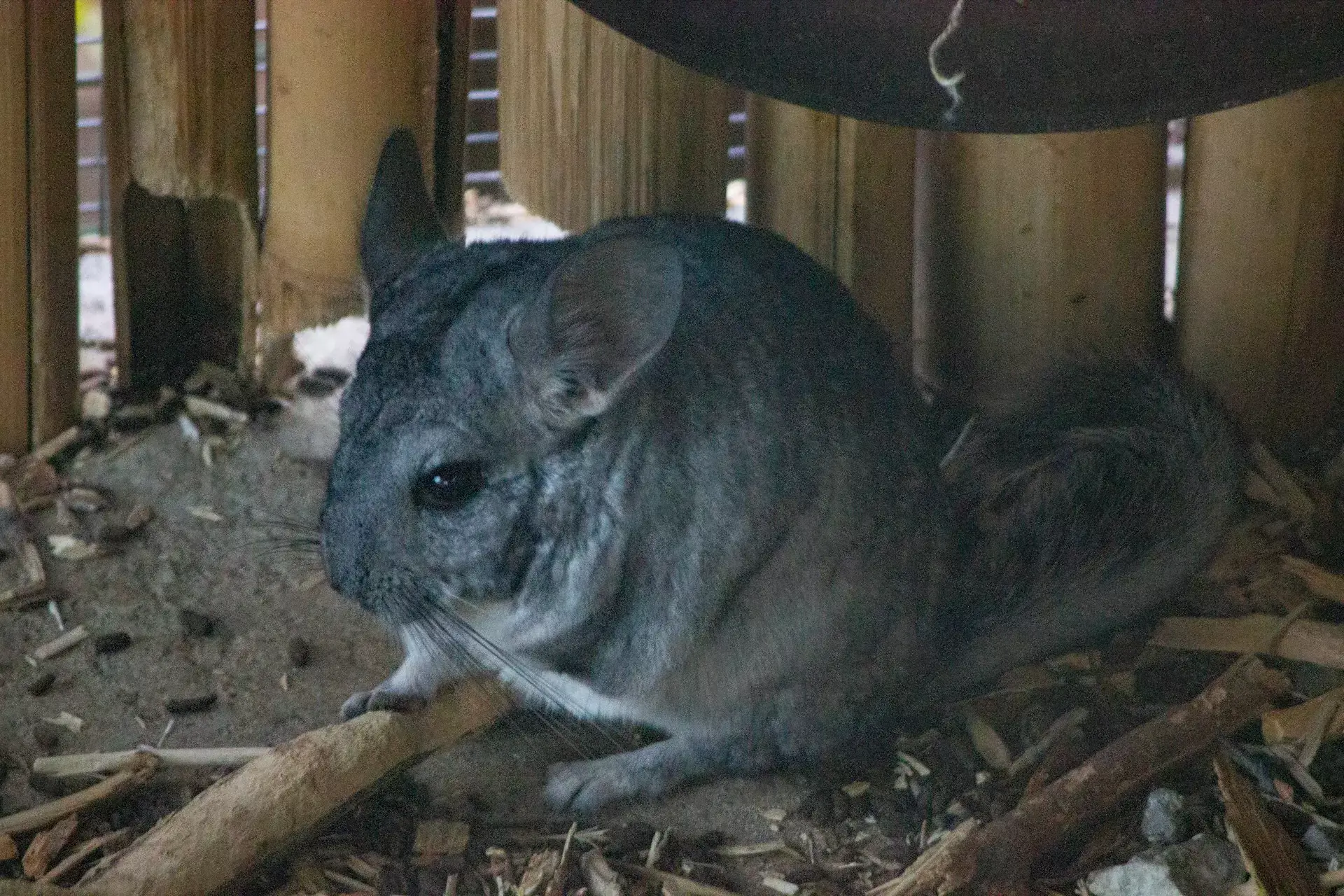March 23 is National Chinchilla Day! These charming little balls of fur are becoming increasingly popular. Chins can make excellent pets, but they do require proper care in order to thrive. A local Clermont County veterinarian explains some basics of chinchilla care below.
What Should I Know About Chinchillas Before I Get One?
Every one of our furry friends is special in their own way. It really boils down to what you want. What is beneficial to one individual may be detrimental to another.
Chinchillas aren’t the most demanding pets on our lineup, but they do require a lot of attention. With these guys, you won’t need to do too much on a daily basis; the crucial thing is to understand the do’s and don’ts of chinchilla care.
People considering adopting one of these cute pets should be aware that these guys have significantly longer life spans than other small animals. Chins can live for ten or even fifteen years!
However, there are some possible deal breakers.
Before adopting one of these guys, or any other animal, do your research thoroughly.
Do Chinchillas Like to Cuddle?
Your adorable might not mind being held, once they are used to you and feel safe with you. However, chinchillas often prefer to be admired from a distance or just gently petted. You can still bond with your tiny companion by talking to them, playing with them, and providing toys and the occasional treats.
What Sort of Cage Do Chinchillas Need?
Because chins enjoy jumping and climbing, you’ll need to pick something that’s taller than it is wide. It should be at least 2′ long by 2′ wide. A multi-tiered cage is often best. Select something with solid floors. The walls should be mesh, with openings spaced less than 1 inch apart. Avoid plastic, as your pet may gnaw through it. Use paper-based bedding materials for substrate: Wood shavings might cause irritation.
Make sure to include plenty of fun toys, as well as appropriate hiding places, such as small boxes and tents. Your chinny will also need climbing branches and chew toys. Ask your Clermont County veterinarian for detailed advice.
What Are Common Illnesses That Chinchillas Get?
Chins, like any other pets, are susceptible to various ailments and disorders. While these little furballs are generally healthy, they are not invincible. It’s essential to understand common illnesses.
Here are a few of the main ones:
Keep a keen eye out for indications that something is wrong. Some of the things to watch for include diarrhea, constipation (lack of fecal pellets), discharge from the eyes or nose, fur loss, withdrawal, chewing themselves, lack of appetite, lethargy, excessive thirst, sensitive/sore paws, bloat, open-mouthed breathing, panting, drooling, pawing at the mouth, lack of interest in grooming, uncharacteristic silence, dirty bottom, restless/unusual behavior, such as pacing, weight gain or loss, lumps, bumps, or lesions. Contact your Clermont County veterinary facility immediately if you notice any of these things, or anything else that seems unusual.
How Do I Know If My Chinchilla Is Happy Or Not?
Chinchillas have several really cute ways of expressing affection. When your pet sees you, they may wag their tail or run around with excitement. They also sometimes physically jump for joy. This is known as popcorning, and it is very cute. Your chin may also nibble you softly to express affection.
What Food Should My Chinchilla Eat?
Chinchillas have special dietary requirements. Their teeth are open-rooted, as are those of many other tiny mammals. This is beneficial in the wild, since they can chew through many tough plants and roots. Your pet will require a substantial amount of fiber. Make sure to provide infinite amounts of hay. This can be supplemented with commercial pellet food and some dark, leafy greens. Your little friend will also enjoy nibbling on safe branches like apple, pear, and blackberry. Take care not to offer anything that has been treated with pesticides.
Chinchillas do not need treats. In fact, serving too many snacks may cause more harm than good. However, you can occasionally offer plain Cheerios, hibiscus leaves, or blackberry leaves. Your pet may also love fresh, safe herbs like oregano, peppermint, and lavender.
It’s equally crucial to understand what not to provide.
Here are some dangerous foods:
Ask your Clermont County veterinarian for specific advice on this. Never offer anything unless you are certain it is safe!
Where Are Chinchillas From?
Chinchillas are from South America. They were previously quite plentiful, but their fur has long been sought after. Wild chinchillas are becoming increasingly scarce.
Do Chinchillas Need To Be Groomed?
You won’t need to bathe your pet, at least not in the traditional manner. In fact, you shouldn’t wash your chin with soap and water. Their fur is not meant to get wet and will take a long time to dry. This may cause skin irritation. Plus, you’ll be dealing with a wet, unhappy furball!
Chinchillas use dust baths to clean themselves. You will need to provide a suitable container and clean dust, which you can get at pet stores. (Tip: Keeping dust in the refrigerator, especially during the summer, will help your pet stay cool.) Most chins should have dust baths three times per week. You’ll want to purchase store-bought dust. Sand is too abrasive and may harm your pet’s skin or eyes.
Do you have any questions about chinchilla care? You can contact us, your local Clermont County pet hospital, at any time! We are always happy to help!
